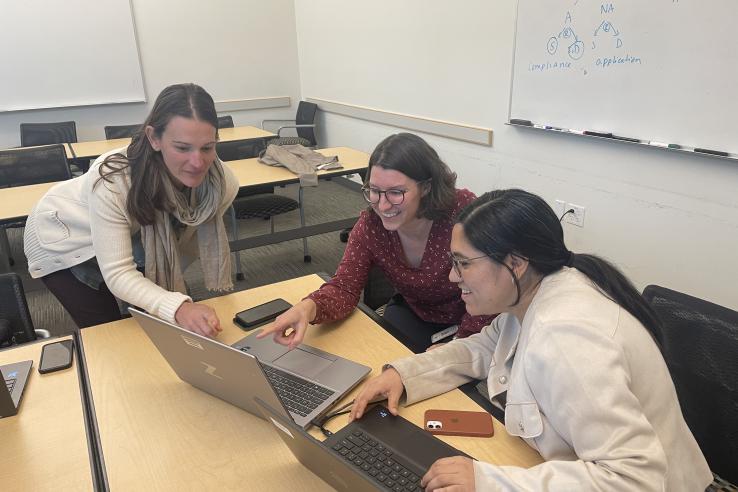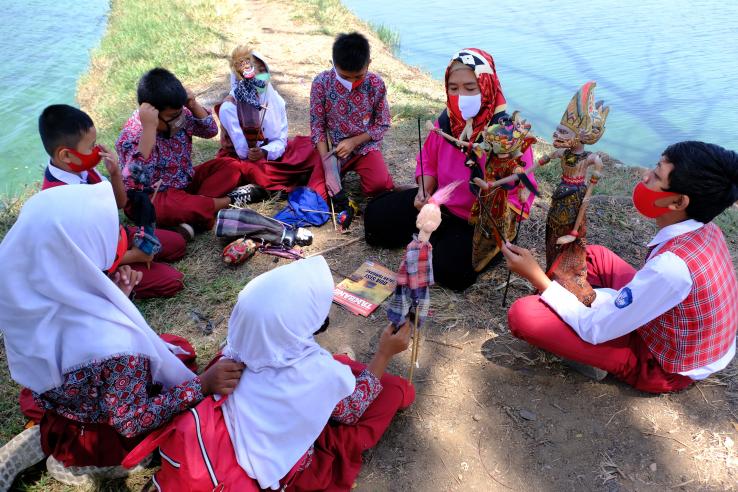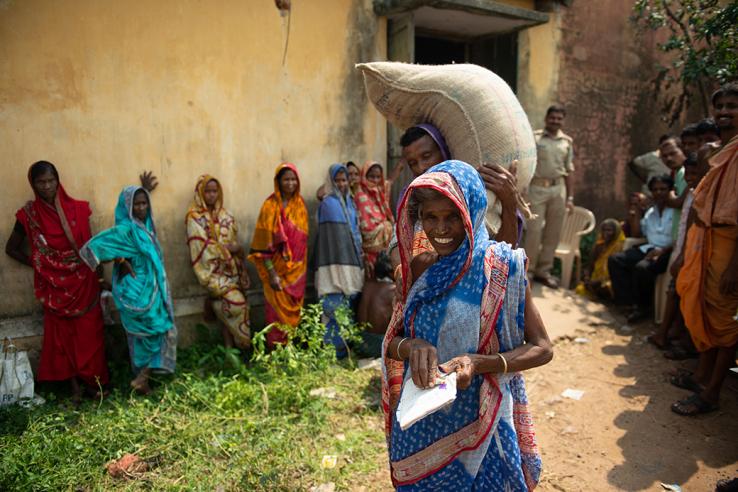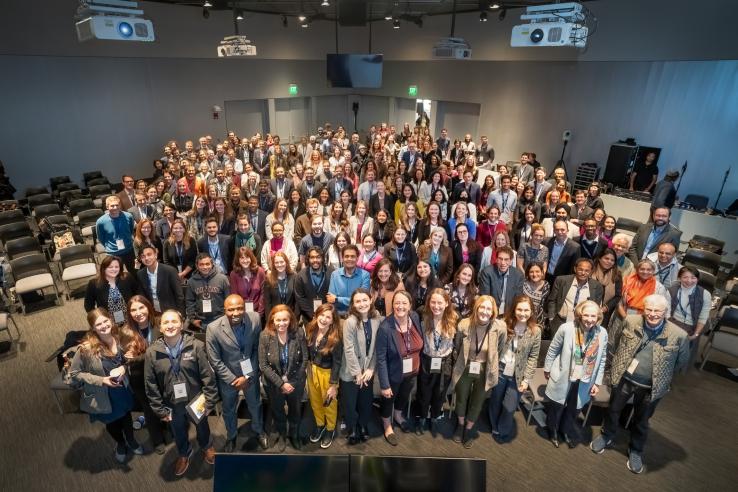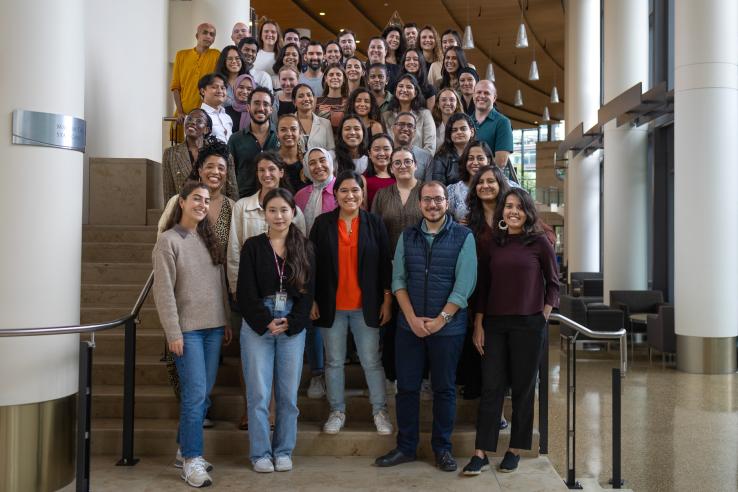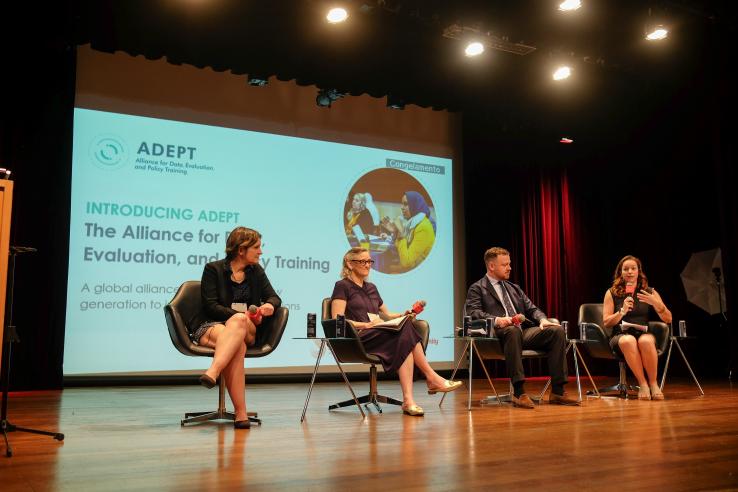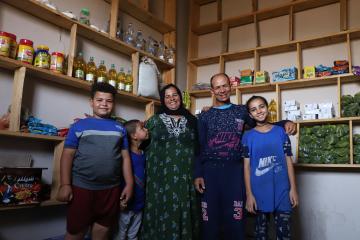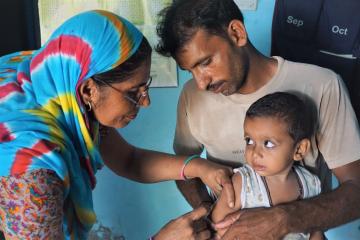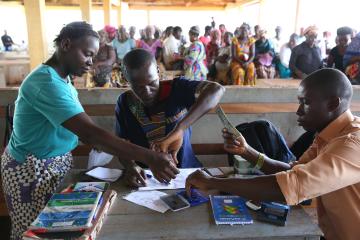Displaying 7246 - 7260 of 8331
Blog
The County of San Diego’s Office of Evaluation, Performance, and Analytics (OEPA), Planning and Development Services (PDS) teams, J-PAL staff, and UCSD researchers discuss their efforts to explore innovative evaluation possibilities aimed at strengthening the implementation of the Climate Action...
Blog
J-PAL North America launches Economic Pathways, a targeted effort to empower the next generation of economists researching critical policy questions.
Blog
The past year made it clear that we need to learn to live with this pandemic but not its terrible impact. As vaccines rolled out, field research began to resume and demand soared for evidence-based policy solutions to help people recover from the unprecedented economic shocks of Covid-19.
Blog
As we enter J-PAL’s third decade, there is no shortage of challenges: Climate change, humanitarian crises, persistent bias and discrimination, and lagging early childhood development are all sobering reminders of how much urgent work there is still to do.
Blog
Celebrating our twentieth anniversary around the world over the past year was a welcome opportunity to take stock of J-PAL’s journey so far—a journey that saw us expand our research network from 8 to 900 researchers, learn from 2,200 randomized evaluations across 96 countries, and reach 600 million...
Blog
2024 has been a particularly challenging year, with multiple global conflicts, deep human suffering, and worsening climate change. But it has also been a pivotal year, marked by many consequential elections and the rapid realization of AI's potential to reshape our world. As political and...
Update
J-PAL Updates
In this edition of our newsletter, we spotlight a new global learning alliance to advance data-driven decision-making, share how evidence is informing policy decisions in Egypt, and highlight how cash grants are helping protect the Amazon.
Blog
This is the first blog post in a series designed to help implementers, policymakers, and funders unpack the different types of evaluations relevant for “AI for Good” applications. Stay tuned for forthcoming posts providing a deeper dive on each of the evaluation levels.
The Evidence Effect
Investing in girls’ secondary education can have big payoffs for girls and for the next generation.
The Evidence Effect
The Graduation approach is a proven "big push" program that has empowered people to pull themselves out of extreme poverty across at least 20 countries.
The Evidence Effect
Making vaccines easier to access and more in-demand protects children from getting sick and dying from preventable diseases.
The Evidence Effect
An entertaining television drama series led young adults to adopt safer sexual health practices—succeeding where other public health campaigns have struggled.
Blog
This post discusses an evaluation design by researchers at J-PAL North America and Pursuit to measure the impact of the Pursuit's sectoral employment program, showing how randomization can be integrated into the application process without compromising enrollment preferences.
The Evidence Effect
When low-income families receive cash with no strings attached, their lives improve in measurable ways.
Resource
Basic page
An evaluation of the Jonathan Clements Getting Going on Savings Initiative will measure the impact of gifting $1,000 contributions to Roth IRAs
